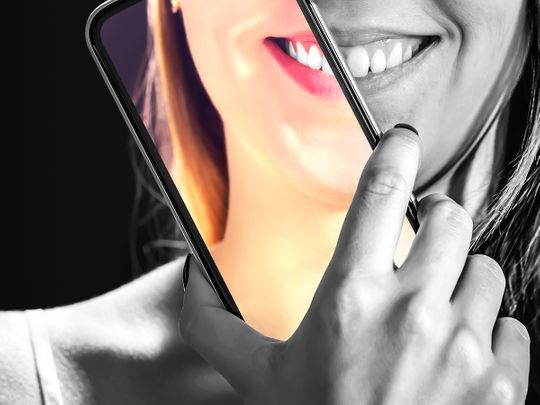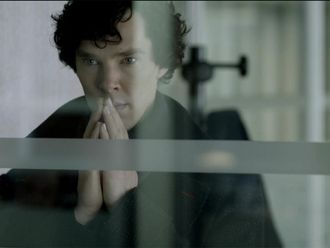
Earlier, we’d turn on our phone cameras, and click selfies. Now, there’s often an additional step – we add a filter.
Click start to play today’s Spell It, where we learn how social media is ‘awash’ with filtered pictures.
No matter where you are, there’s likely a strong social and cultural incentive to look as good as possible, especially online. Beauty filters come to people’s aid – these picture editing tools use artificial intelligence (AI) to alter facial features in images. The ‘skinny filter’ on TikTok, for instance, gives you a slimmer face, and the ‘perfect face filter’ on Instagram adjusts facial features according to the golden ratio or the ideal ratio.
Over time, researchers have been learning that digital beauty filters can have a negative impact on people’s health. These kinds of filters have only been growing in popularity since they first started on social media. Snapchat, for instance, found that over 90 per cent of young people in the US, France and the UK use filters on their app.
A May 2020 research report conducted by City University of London, UK, explored the adverse effects of filters on mental health. In a survey of 175 participants, with an average age of 20, researchers found that 90 per cent of young women used filters or edited their photos. The most common filters used were ones that evened out skin tone, brightened the skin, whitened teeth, and reduced body size. Those who were surveyed also said they used filters that changed their face – ones that reshaped jaws or noses, made lips look fuller or made eyes look bigger.
Other research finds that young people with low self-esteem and poor body image are more likely to use filters – this then reinforces their negative beliefs that they are not good enough. A study conducted by the Dove Self-Esteem Project in the US in 2020, found that 80 per cent of girls used a filter to change how they appeared by age 13.
The pattern emerging from beauty filter use is quite self-evident: it’s harmful, and the more one does it, the more damaging it is likely to be. But is there a way to develop healthier filtering and posting habits?
According to a report in US-based psychology news website Psychology Today, here are some ways to manage how you use filters better, in a way that still preserves your self-esteem:
1. Use selfies mindfully
Keep checking in with your mood before and after the editing and posting process. Do you keep checking for reactions, and compare your selfie to others? Does posting on social networks enhance our wellbeing or detract from it? Being aware of how you feel in the moment can help you navigate and figure out next steps.
2. Consider the message
Every time you filter a selfie, on some level, it’s like telling yourself you don’t look good enough as you are. Consider this – if the image doesn’t really represent you, how much satisfaction are you truly getting from the likes and comments people post in response? The use of beauty filters has been known to increase social anxiety and lead to feelings of social isolation. So, consider the message you’re sending across – to others, but also to yourself.
3. Take a break
Try to disconnect, and opt for other social activities, like face-to-face interactions and outdoor recreation. Managing your image online can give you a false sense of safety and control – something that isn’t there when you’re interacting with someone in person. Remember to build real connections. A September 2013 study in the journal PLoS One found that real-life friendships increase happiness and wellbeing far more than online connections.
Do you try to limit your use of beauty filters? Play today’s Spell It and tell us at games@gulfnews.com.





